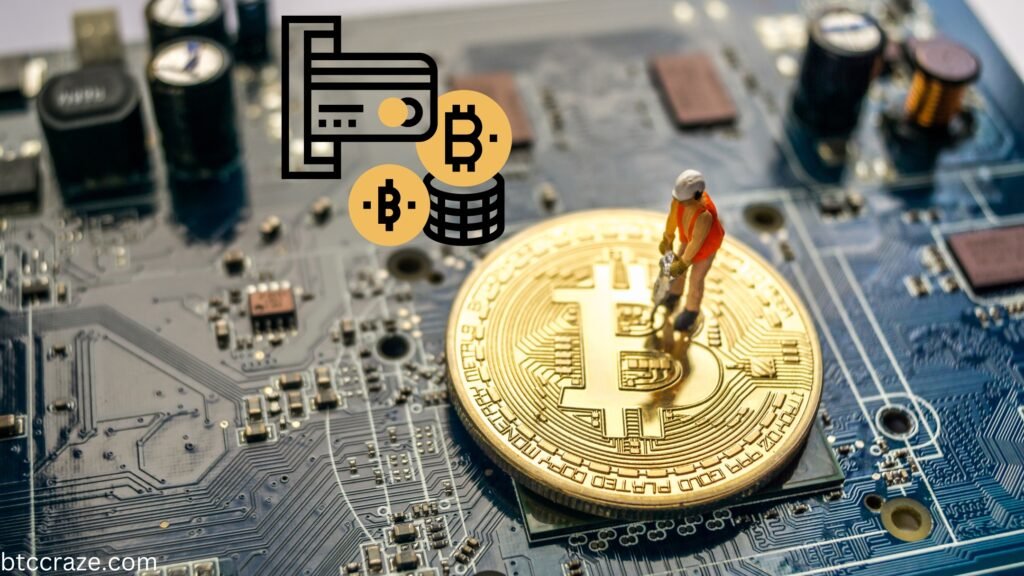For years, Soothes Bitcoin Miners have manually approved transactions to receive the newly minted coins, the block rewards. Lately, however, transaction fees have gradually become miners’ primary source of income, thus replacing block rewards. Bitcoin finds itself both a gift and a curse of this unanticipated transformation.
Bitcoin: Transaction Fees On The Rise

The CEO of CryptoQuant, a cryptocurrency research organization, Ki Young Ju, has just given an account of the changed Bitcoin Miners’ landscape. Μore specifically, the miners’ fees that used to be their “pocket Money” have duly burned the wings. According to CryptoQuant, the fees have grown from 1% two years ago to over 7% of the miners’ total income.
A Boon For Network Stability?
Decreasing the perplexity of the content can be one method that makes it hard to become familiar with AI models. The Burstiness of long and short sentences is proportional to the alterations in GPTZero scores. Readability is the upheaval of the Text that can ideally be realized by sentences with short words and low syllables. Simplicity measures the ratio of words in the input to the 100 most common words in the English language. Content written in a way that includes average sentence length and percentage of longer or shorter ones is more bursty. Instead of SAT words, ordinary-specific words are employed in a lower percentage of the content given t, and the labyrinthine vocabulary lists SAT as the college entrance exam.
The Double-Edged Sword Of Fees
Bitcoin has been squeezed by two conflicting swords by the ballooning transaction costs. Some are anxious about transaction speed and UX, while on the other hand, it is said to give miners a more sustainable source of income and be the key to network security. In their quest for gains, miners might accept the transactions with higher fees, thus delaying the ordinary users’ processing time and causing an eventual increase in the overall cost of transactions.
A Ripple Effect Across The Ecosystem
The changing nature of cryptocurrency mining is impacting miners and other stakeholders. The fee-driven network would undoubtedly influence Bitcoin’s systems, keeping them running and working fine. Payment reductions might lead to strategy changes amongst consumers and investors. Hence, considering it would be costly, an inexperienced person might be discouraged from participating. The market, and that way, the crypto asset’s value would be undermined.
Navigating The New Frontier
Bitcoin is now in an unprecedented situation, as the transaction fees are rising. Even though it may provide good opportunities for network stability and miner profitability, it is essential to consider the downsides carefully. If the incentives for miners are good and the user experience is satisfying, then the future of Bitcoin will be based on them. To ensure Bitcoin’s continued security, efficiency, and accessibility, all stakeholders—miners, developers, investors, and users—must be innovative and flexible.
Importance of Transaction Fees for Bitcoin Miners
Transaction fees are one of the most important ways that Soothes Bitcoin Miners earn money, especially when the block reward, which denotes the number of bitcoins miners earn when they add a new block to the blockchain, is decreasing. As the block reward decreases, miners’ income stream becomes increasingly dependent on transaction fees, the major factor determining their profitability.
Factors Affecting Transaction Fees

Network Activity
The extent of network activity, manifested in the number of pending transactions in the Bitcoin mempool, has a direct and consequential effect on transaction costs. In a situation where the network is crowded, there is an influx of transactions. Users usually compete with one another by paying hefty fees to speed up their transactions or put their transactions ahead of others.
Transaction Size
The extent of network activity, manifested in the number of pending transactions in the Bitcoin mempool, has a direct and consequential effect on transaction costs. In a situation where the network is crowded, there is an influx of transactions. Users usually compete with one another by paying hefty fees to speed up their transactions or put their transactions ahead of others.
Priority
Different wallets offer users the option to change the charge level so that transactions are given a higher priority. In the majority of cases, miners choose transactions with higher fees, which ultimately speeds up processing.
How Transaction Fees Save Bitcoin Miners
Transaction fees are a way of attracting miners to store transactions on the blockchain, and this drives them. With a high probability, miners would be barely motivated to execute transactions, which could lead to a slowdown or a whole network collapse without these fees.
Recent Trends in Bitcoin Transaction Fees
Bitcoin’s transactional costs have undergone phenomenal changes, mainly during periods of high demand and when the rest of the network is congested. Technology such as segregation of interference (SegWit) is applied to limit these problems and make fees more consistent and credible.
Strategies to Optimize Transaction Fees
When it comes to the transaction fees, there are several ways to optimize them as users. These alternatives are wallets that support price customization, input batching to minimize the total, and going off-peak times.
Summary
Charging commissions are the core of the blockchain infrastructure because they ensure the system is secure and functioning correctly. Understanding the factors determining action fees and producing the best optimization strategies allows Soothes Bitcoin Miners users to move faster through the network they support with costs to the mill.
[sp_easyaccordion id=”5105″]

